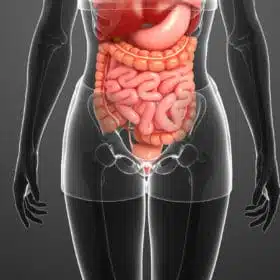Even if the birth of your child floods you with happiness hormones for a while, the moment inevitably comes when the panic sets in to get rid of the remaining pounds. Many mothers who were previously active in sports spend sleepless nights thinking about strategies on how best to achieve this. However, the stress of life with a baby often leads to this plan failing. To prevent this from happening, you should follow these six rules.
1. recover from your pregnancy first
The desire to start a diet often sets in just a few days after giving birth. However, this is counterproductive, especially as the pregnancy was extremely exhausting for your body and your organism needs an appropriate amount of time to recover. In this context, dieting only causes additional stress. So make sure that you eat enough in the first few weeks, perhaps even the first two months after giving birth, and above all that you eat a balanced diet. This will not only support your body's regeneration, but also the production of breast milk, which is of course extremely important if you are breastfeeding. In this respect in particular, an insufficient intake of fat is detrimental to the quality of breast milk and therefore also to your child.
2. eat lots of complex carbohydrates
Even if your personal focus is still on your newborn, other influences such as your household, your job or caring for any children you already have are increasingly returning to your everyday life. This is naturally very energy-sapping, so you should fill your plate with energy-rich foods accordingly. The best way to do this is with complex carbohydrates that keep your blood sugar levels stable and avoid large fluctuations in energy levels. In addition to vegetables and pulses, examples include wholegrain products, brown rice, potatoes, oatmeal and wholegrain pasta. On the other hand, you should avoid high-glycaemic carbohydrate sources such as sugared soft drinks, sweets or cakes, even if the stress of everyday life increases your cravings.
3. make healthy fats your friends
The positive influences that unsaturated fatty acids have on your organism are great, because omega-3 fatty acids are of invaluable importance for your metabolism, especially after pregnancy. Specifically, this concerns docosahexaenoic acid, or DHA for short, which plays a key role in the development of the early childhood nervous system. Since the amount of DHA you consume through food is transferred in its relative proportion directly into breast milk, you are doing your child good with every milligram of DHA you consume. The link between this fatty acid and the development of the nervous system has already been scientifically proven, as the children of breastfeeding mothers with a high DHA content in their diet showed a significantly higher level of attention. You can choose whether you want to take food supplements with a high omega-3 content or natural sources such as wild salmon, linseed oil or walnuts. It is important that the proportion of DHA is at least 200 milligrams per day.
4. maintain a high protein intake
It is obvious that your baby's growth has necessitated additional protein intake. But don't fall for the fallacy that this requirement drops significantly immediately after pregnancy. Quite the opposite, because after the birth, your body's regeneration has top priority. So make sure that you continue to consume at least 1.5 grams of protein per day and kilogram of body weight. It is no less important that you consume protein every 3-4 hours throughout the day in portion sizes of 25-35 grams to ensure constant protein availability. This not only supports your regeneration, but also boosts your metabolism and prevents your body from losing hard-earned muscle mass as part of your diet. In addition to fatty protein sources that provide you with omega-3 fatty acids, you should mainly rely on lean protein sources such as poultry, low-fat quark, beef or white fish.
5. drink, drink, drink
Especially if you are one of those mothers who prefer to breastfeed their child after pregnancy, you run the risk of dehydration due to the constant loss of fluids. As this of course negatively affects pretty much every metabolic process in your body, leads to a false sense of hunger, reduced performance during training and, last but not least, lower breast milk production, you should avoid dehydration at all costs. To achieve the recommended daily intake of at least one liter of water per 20 kilograms of body weight, it makes sense to draw up a drinking plan first. Set yourself drinking targets that you want to achieve at predefined times of the day, as this will make the task much easier. However, pay particular attention to regularity, as drinking large quantities in a short space of time will only lead to most of the fluid being excreted again, as your body is not able to absorb it so quickly into the tissues.
6 The sooner you become active again, the better
Just like during pregnancy, there will be a lot of days afterwards when you have nothing but exercise on your mind and would prefer to crawl under the comforter all day. However, if your overriding goal is to get rid of your pregnancy belly, which of course it is, you will have to summon up all your willpower and overcome yourself at this point. Once you've done it, you'll notice how good the exercise is for you and how energized you are throughout the rest of the day. Start slowly, however, by planning two to three workouts per week, during which you mainly do exercises or sports that you enjoy the most. It doesn't necessarily have to be a strength session in the gym or a run on the treadmill, because a badminton match with friends or a relaxed walk will usually do the trick. And if nothing works, you can always work on dirty tricks and reward yourself with a little wellness or a sweet treat after training. Of course, this shouldn't be too big. One last tip at the end If you are breastfeeding your baby, we have good news for you, because as a study published in the American Journal of Clinical Nutrition shows, breastfeeding leads to an additional energy deficit of 300-500 kilocalories per day. You should of course take this fact into account when planning your diet so that you don't create too large a calorie deficit, which could slow down your metabolism in the worst case scenario.




